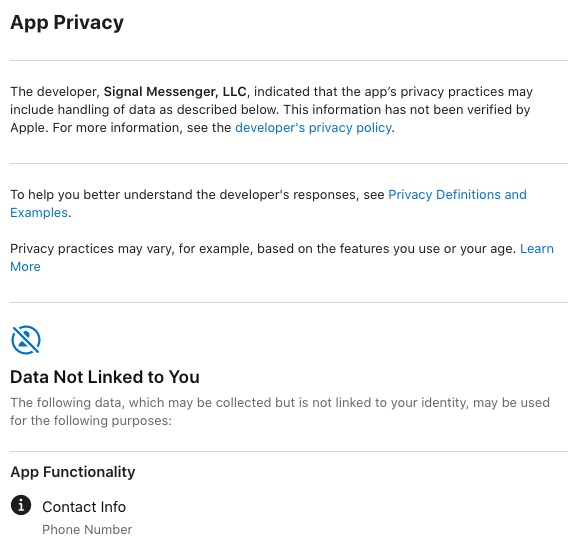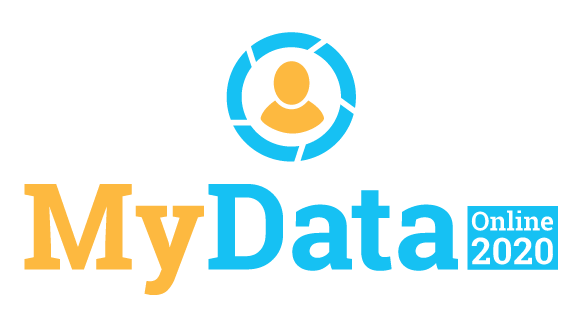-
2021-06-13
Colorado is now the 3rd US state with modern privacy legislation, with a twist
This past week, the Colorado legislature passed the “Colorado Privacy Act”, which makes Colorado the 3rd US state with modern privacy legislation, following the CCPA in California and the CDPA in Virginia. It will start going into effect about 24 months from now.
Its provisions are similar to California’s and Virginia’s, except for this one, which goes substantially further:
A CONTROLLER THAT PROCESSES PERSONAL DATA FOR PURPOSES OF TARGETED ADVERTISING OR THE SALE OF PERSONAL DATA SHALL ALLOW CONSUMERS TO EXERCISE THE RIGHT TO OPT OUT OF THE PROCESSING OF PERSONAL DATA CONCERNING THE CONSUMER FOR PURPOSES OF TARGETED ADVERTISING OR THE SALE OF PERSONAL DATA … BY CONTROLLERS THROUGH A USER-SELECTED UNIVERSAL OPT-OUT MECHANISM THAT MEETS THE TECHNICAL SPECIFICATIONS ESTABLISHED BY THE ATTORNEY GENERAL…
In other words, Do Not Track – or something very much like it – is back in Colorado, and ignoring the setting, like companies did widely when Do Not Track was created, is not an option any more. The technical details will need to be figured out between now and when this provision goes into effect, which two and a half years away. So plenty of time to get this right.
Progress! Which US state is next? The IAPP has a great chart showing the state of privacy legislation in states around the US.
Here is the full text of the Colorado bill.
-
2021-01-24
In praise of incompetence
Shortly after the 2016 election, I pulled out a book written by my grandfather, chronicling the history of Bachhagel, the village in southern Germany where he grew up.
I re-read the chapters describing how the Nazis, in short order, took over life there in 1933. His eye-witness account describes in fascinating, and horrifying detail, how quickly the established order and century-old traditions were hollowed out and then overrun.
Bachhagel at the time was a tiny place, probably less than 1000 people, out in the countryside, of no political or economic importance. I could have understood how the Nazis would concentrate on the major population and economic centers to crush the opposition, but Bachhagel certainly was as far away from that as possible.
Nevertheless it just took a few months, after which the established order had been swept out and the thugs were fully in charge, day to day, from school to church to public events, and their entire worldview was the only thing that mattered.
With Joe Biden in the office this week, it seems we have turned a chapter. And looking back to the 2016 election day, I realize that although the past four years were bad, people died, children got separated, and many other outrages, we have been lucky. In 2016, I had been expecting worse, and possibly much worse.
Why didn’t it turn out as bad as I had feared? It’s not that the defenders of the republic did a particularly good job. Instead, the would-be usurpers just sucked at getting anything done, including just actually using the power in their. hands. If it had been the original Nazis, the consequences would have been so much worse.
I vastly prefer better defenses, however, than being lucky with having an incompetent opponent. In computer security terms, Trump was a Zero Day Vulnerability of the constitutional system of the US – a successful attack vector that previously had not been known.
Unfortunately, people still aren’t taking this attack vector as a seriously as they should, otherwise we’d have specific legal and practical fix proposals all over the news, which we don’t. Which means the vulnerability remains, and our primary defense will remain the same: hoping that the attacker is incompetent. As long as we don’t fix the system, the next attacker is going to try a similar route and they may very well be more capable. In which case we’d really be in trouble.
So: I raise my glass to imcompetence. Next time, may we get a similar bunch of incompetents. Or actually get our act together and make sure there won’t be a next time.
-
2021-01-15
Are most Facebook users cost centers, rather than profit centers?
According to CNBC, Facebook made $7.89 in revenue per average global user in the 3rd quarter last year (with a high of $39.63 in the US and Canada, and a low of $2.22 outside US, Canada, Europe and Asia-Pacific).
According to Yahoo! Finance and my calculation, if its expenses in the same quarter were $13.4 billion, expense per user was $13.4 / $21.5 * $7.89 = $4.92 on average (proportionally allocated given expense / revenue ratio).
Revenue per user is obviously quite different in different parts of the world, but what about costs? It seems to me that on a per-user-basis, selling and serving all those ads in the US and Canada that led to so much revenue per user is probably more expensive, compared to some places that have less commerce. But as dramatically different as $39.63 and $2.22 on the revenue side? I don’t think so. Not even close.
In other words, users in the rest of the world at $2.22 of revenue per user are almost certainly not profitable. Even if expenses there were only half of average, it would still not be enough.
Of course these numbers are averages across the regions, and chances are that the differences between users within one region are also quite striking. I don’t have numbers on those. But I would bet that some users in the US and Canada also bring in less revenue than the $4.92 in average cost per user.
Who would those unprofitable users be in the US, say? Well, those demographics and those neighborhoods in the social graph in which advertisers see little opportunities to make a sale, because, for example, everybody is unemployed and angry.
(So if, for example, a certain presidential campaign came by and wanted to specifically target this demographic with political ads … I for one can vividly imagine the leap of joy of some Facebook business guy who finally saw how to get promoted: “I turned a million users from being a cost center to being a profit center”. And democracy be damned. Of course, I’m speculating here, but directionally I don’t think I’m wrong.)
Which suggests another strategy to unseat Facebook as the dominant social network: focus on picking off the users that generate the most revenue for Facebook, as they subsidize the rest. If that relatively small subset of users jumped ship, the rest of the business would become unprofitable.
(I jotting this down because I hadn’t seen anybody suggest this strategy. We do need to find ways of ending surveillance capitalism after all.)
-
2021-01-02
The terrible privacy of Facebook apps, visual edition
Update 2021-01-07: Now consenting to let your data be shipped off is becoming mandatory (thanks @michel_slm@floss.social for the link.)
Let’s take Whatsapp, acquired by Facebook, and Signal, independent. Both apps largely do the same thing (chat), are based on the same technology, and even led/funded by the same guy, Brian Acton (who is funding Signal to atone for his sin of selling Whatsapp to Facebook according to this article).
Here are screen shot shots of the privacy implications of both apps, according to the excellent disclosures now required by Apple:


If this doesn’t convince you to use Signal over Whatsapp, and that touching anything that Facebook does is a high-risk activity, I don’t know what will.
-
2020-12-23
35% of Americans are financially wiped out already
Newsweek has the story:
The latest data from the Census Bureau’s Household Pulse Survey, taken between November 25 and December 7, found that 35.3 percent of U.S. adults are “living in households not current on rent or mortgage where eviction or foreclosure in the next two months is either very likely or somewhat likely.”
More than one third of adults.
Washington D.C. holds the record with 67.3% in this survey.
Can you imagine a third of all adults being evicted? Or two thirds in DC? I don’t think that is possible, because wouldn’t they have to move into the apartments and houses of other people being evicted, in a grand game of musical chairs? And if they indeed were evicted, with a third of the population suddenly homeless, the real estate market would totally collapse, and that wouldn’t make landlords happy either. So I would expect some kind of compromise to be found because it’s in the interest of renters and landlords, buyers and lenders.
But if you are in danger of being evicted, it means that you are basically wiped out financially. Risking the roof over your head, or any roof over your head, is not something anybody does easily.
But we are nowhere done with COVID-19. We may have made it into the second half of the pandemic, but not by much: vaccination has only started, and is supposed to continue into the summer. So if by now 35% of people are wiped out, what about, say 6 months from now?
And even if they somehow make it, and we beat back the virus, how are 35% of people, or more by the summer, ever supposed to financially recover? Just the accumulated debt would take years to pay off even with good jobs. Which are in short supply, and shorter supply now given the impact the pandemic is having on even further worsening inequality.
Many have been wondering why there aren’t more people on the streets, demanding a proper government response. They simply may not because a pandemic is going on. Once the threat from the virus recedes, however, there may be a very hot summer.
-
2020-12-09
Presenting at MyData 2020
The annual MyData conference is starting in just a few hours. Thanks to COVID, I don’t have to get on an airplane to Helsinki!! They instead use QiQoChat, a conference wrapper around Zoom. See you there? (You can still get tickets.)
I’ll be speeaking in the following sessions:
-
COVID Apps – Is Privacy Possible? With Julian Ranger, exec. chairman of digi.me in the UK, and myself. We’re planning to do a presentation each, and then open discussion.
Thursday, Dec. 10, 2:45pm pacific (22:45 UTC).
-
Demo Lounge #3. I’ll be demonstrating UBOSbox, our home server product, that lets you take your personal data home from other people’s clouds on easy-to-administer hardware you control.
Thursday, Dec. 10, 4:30pm pacific (Friday 0:30 UTC).
-
MyData Governance Interoperability Landscape. I’ll be moderating this international panel with panelists Matthias De Bievre (France), Nat Sakimura (Japan), Joni Brennon (Canada), Harshvardahn Pandit (Ireland), Paul Knowles (Switzerland), Antti “Jogi” Poikola (Finland) and Mark Lizar (Canada).
Friday, Dec. 11, 2:45pm pacific (22:45 UTC).
This is going to be fun! And a great kickoff for 2021, which I think will become Year 1 of the user-controlled personal data revolution.
-
![[Logo]](https://reb00ted.org/assets/logo.png)


